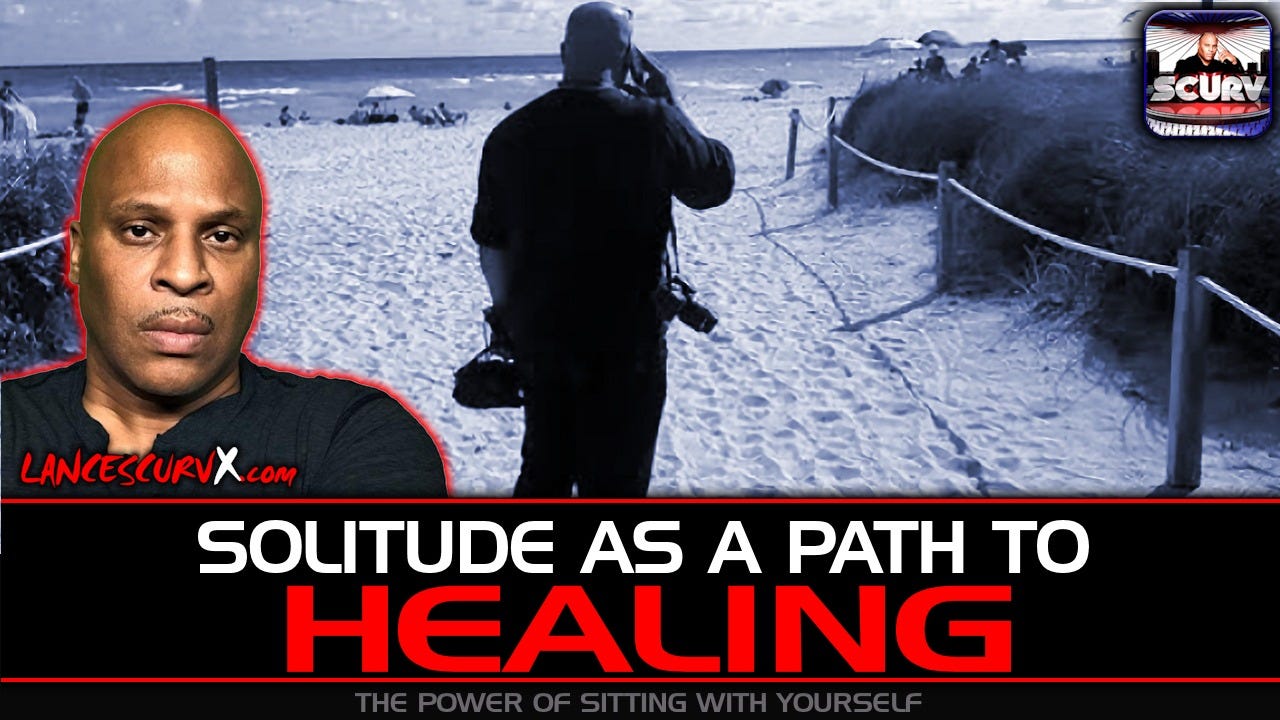SOLITUDE AS A PATH TO HEALING...
THE POWER OF SITTING WITH YOURSELF
In a society that often demands our constant resilience, Black people rarely get the space — or the permission — to slow down and sit with ourselves. We move through a world that has historically misunderstood us, undervalued us, and placed impossible expectations on our shoulders. Yet within all of this, solitude remains one of the most powerful tools available to us. It is not a retreat from life; it is a return to self.
I’ve come to truly embrace the time that I have in solitude. In the quiet, I’ve found something our community has been denied for generations: room to breathe, room to heal, room to grow. Solitude becomes more than personal time — it becomes a form of resistance and restoration. This is especially true since being much closer to natue living up in the mountains.
Why Solitude Feels So Foreign to Us
Many people are afraid to spend time alone because being alone means confronting truths we’ve carried for years. For Black folks especially, solitude can feel heavy. We move through life bearing generational trauma, unspoken grief, societal pressures, and personal battles that we rarely get the chance to acknowledge — let alone heal.
So instead of pausing, many of us stay busy. We stay surrounded. We stay distracted. But that constant motion is often a shield built out of survival. We were taught to keep pushing because stopping felt dangerous.
Deep down, we know there is internal work to be done. But many choose to sweep it under the rug of denial, because the thought of facing it feels overwhelming. Not because we are weak, but because we’ve had to be strong for so long.
Solitude: A Sacred Space for Black Healing
Solitude doesn’t allow us to hide. It invites us to sit with ourselves long enough for truth to rise — truth about our pain, truth about our fears, and truth about the healing we deserve.
For Black people, solitude becomes a sacred act. It’s where we peel back layers of societal expectations, reclaim our voice, and reintroduce ourselves to our own needs. It’s where we acknowledge what we’ve endured without minimizing it. It’s where we stop living in survival mode and start living in restoration mode.
Solitude doesn’t break us. It frees us.
The Internal Cleaning We Can’t Keep Avoiding
There comes a moment, sitting in solitude, when you realize that the internal cleaning you’ve been avoiding is actually the very thing that will make you whole. Every wound we ignore, every emotion we suppress, every story we don’t tell — it all waits for us.
But when we confront these things, something powerful happens. We begin to release generational burdens. We interrupt cycles of silence. We create mental space for peace and clarity. We become more emotionally grounded, more self-aware, and more aligned with who we truly are.
This work isn’t just about personal elevation — it’s about collective healing. When one of us heals, it ripples through our families, our relationships, and our communities.
Becoming a Stronger, Grounded Version of Ourselves
Solitude teaches us that growth does not require an audience, healing does not require applause, and transformation does not require permission. It gives us something the world rarely offers Black people: uninterrupted self-reflection.
By doing the internal work, we evolve into people who are not controlled by past trauma, not defined by societal stereotypes, and not weighed down by unspoken pain. We become people who move with intention, clarity, and rooted self-worth — qualities our community needs now more than ever.
This is how we fortify ourselves. This is how we protect our mental health. This is how we build generational strength.
Solitude Is Not Isolation — It Is Liberation for the Black Soul
Solitude is not loneliness. It is liberation. It is where we break cycles, restore our spirit, and build the emotional resilience our ancestors dreamed for us. In a world that constantly demands our labor, our creativity, our culture, and our strength, choosing solitude becomes an act of reclaiming our wholeness.
When Black people embrace solitude, we stop surviving and start healing. We stop shrinking ourselves and start evolving. We stop running from truth and start walking toward freedom — the kind of freedom that begins within.




